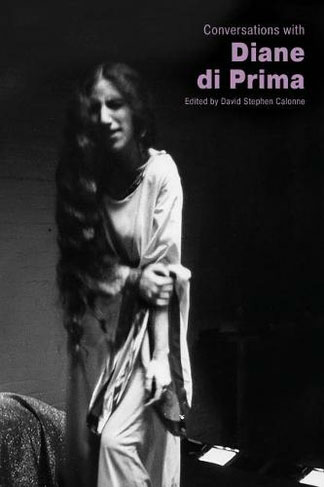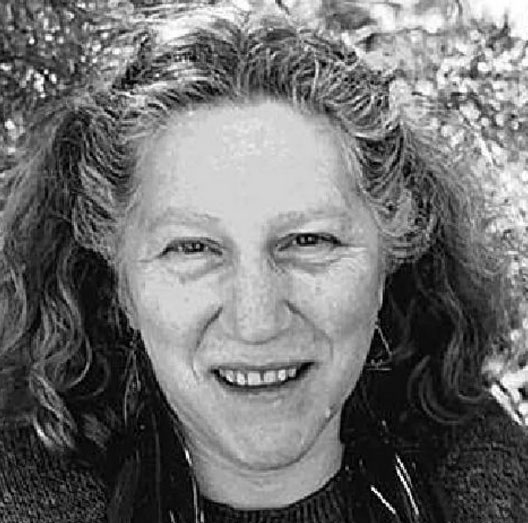
Conversations with Diane di Prima, ed. David Stephen Calonne
(233pp, $25, University Press of Mississippi)
Although recognised and remembered as a radical political and feminist poet, Diane di Prima (1934-2020) always questioned what was happening and chose what to engage with. Having read and reviewed a recent complete edition of her Revolutionary Letters I wanted to find out more about the author, and this new book offered just the opportunity. On the very first page of this book, in an interview from Grape, a magazine published by the Vancouver Community Press, we get this:
Grape: You mentioned earlier that you’ve stopped reading underground papers. Why is that?
Diane: Because I find that level of information just isn’t giving me anything I can work with at
this point. It’s not interesting to me. All that’s happening on that level is a kind of sick ‘history
repeats itself’ piece of nonsense as far as I can see.
Which seems, in part anyway, a rational response to the popular and fashionable revolutionary discourse of the time, but is somewhat undermined by the writer’s statement later on that she goes ‘for information to things like astrology, things like . . . whatever . . . like the I Ching’, the first of which gives her ‘concepts of form, a feel of energy nodes, of vortexes and how they might interact’. She talks of stepping back and giving herself time ‘to find out about more of the things that were going down.’
What was going down, according to di Prima, is the fact that she thought there was ‘a lot more black magic involved in the manipulation of the planet that’s been going on.’ She chose different areas to investigate, including those mentioned above as well as homeopathy and self-awareness (rather than science), desiring ‘intuitional leaps’ rather than ‘slow understanding’.
This, of course, is as much of its time as what di Prima was questioning. She doesn’t have any answers that will mend society or heal the planet, but she states that what she is basically saying ‘is that we were all taken in by a bunch of bullshit.’ This includes the counterculture options of back-to-the-land farmers, reclaim-the-wilderness games, commune dwellers, the acid tests, the Diggers, and much else which – along with schooling, ‘food, television, fluorescent lights and the whole trip’ – is resulting in ‘[a]pathy and cynicism’, people who ‘don’t believe anything’.
It’s scary, depressing reading, both diagnosis and di Prima’s answers, and that’s only the first piece. She declares that people must be strong, physically and mentally, and find out how their bodies function, and then ‘find out as much as [they] can about what people used to know’ and start taking ‘things literally like myth and symbol. Just believe ’em.’
Myth and symbolism have informed much of di Prima’s poetry, most of which is not at all like Revolutionary Letters but more complex and difficult. She clearly continued her personal explorations and remained suspicious of much we take for granted, asking if the web actually reached people or facilitated informed learning and thinking. She’s right of course, but at times throughout this book, she seems inflexible and stubborn rather than wise.
On various pages she buys into the ‘my work is my life’ shtick, and evidences her engagement with a pick’n’mix hodge-podge of new age beliefs, picking bits from magic, psychology, alchemy, Buddhism, occult texts, and meditation (etc. etc.) as suits her; but she also gets stuck into working with children and students to try and counter, indeed subvert, the educational norms of 20th century America. Although she repeatedly states that her poetry has no solutions, only ideas and information, she seems more obsessed with personal action and the content of her writing, rather than any engagement with radical poetry and poetics.
That is disappointing for this reader, but it’s good to be surprised. And if some statements annoy or seem naive, there are fascinating sections in here about di Prima’s surprising friendship with the poets Robert Duncan and Ezra Pound, Allen Ginsberg’s Naropa Institute, small press publishing, 9/11, gender, feminism and political correctness, painters and painting, and – however critical – some great reminiscences about the alternative cultures and communities in San Francisco and New York. Contradictory, confused and questioning, di Prima is nevertheless revealed as a fascinating, opinionated interviewee, offering optimism and possibility, despite herself.

Rupert Loydell
[This review was first published by Tears in the Fence]
